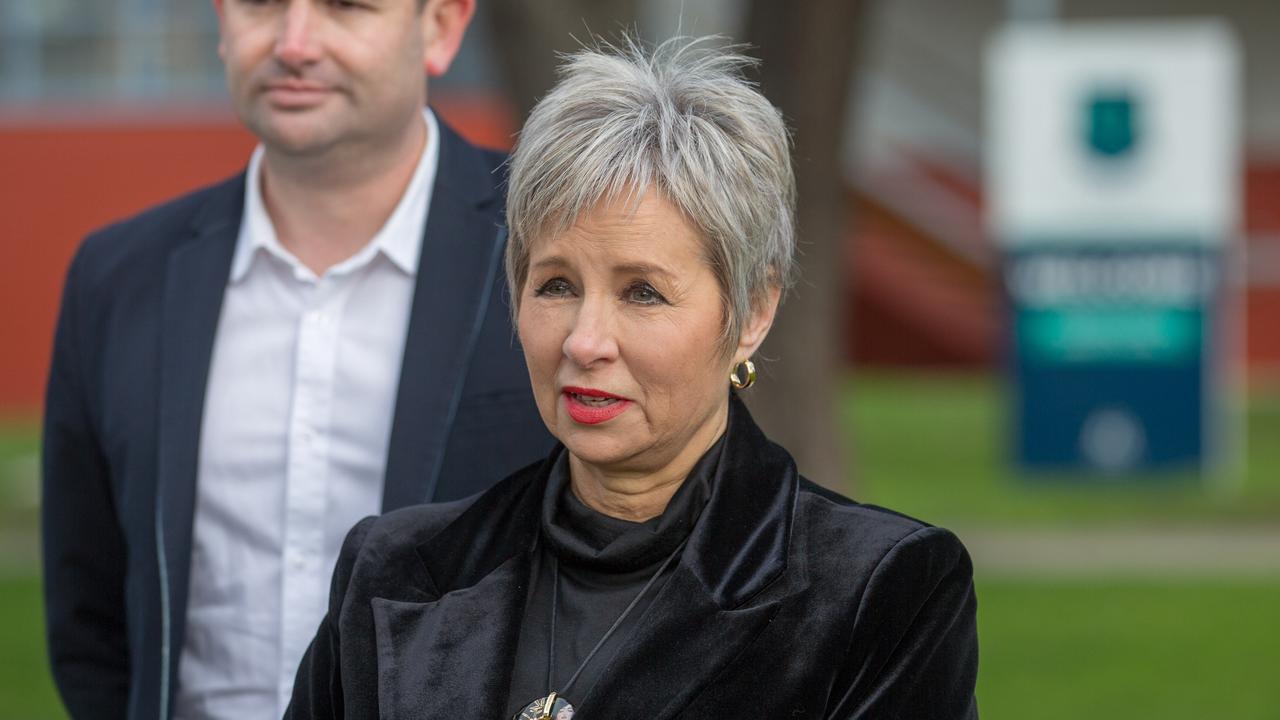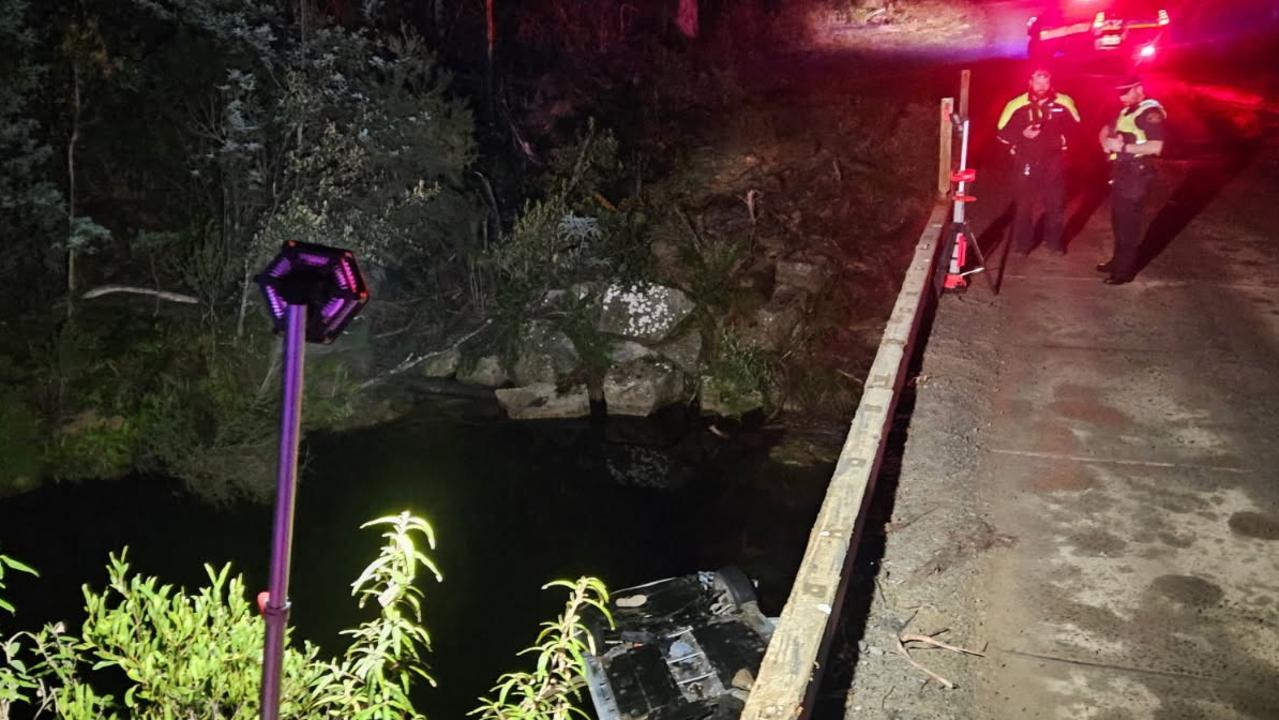Knife crime spike in Tasmania sparks call for tighter weapon laws
The annual police survey has found a steep rise in knife crime, a trend noted in other states, but which local community leaders say is worse in Tasmania because of lax weapon laws.

Tasmania
Don't miss out on the headlines from Tasmania. Followed categories will be added to My News.
Robberies have increased 29 per cent in Tasmania in the past year, a crime report by Tasmania Police has found, with more than 50 per cent of armed robberies committed with a knife.
The annual police crime survey paints a grim portrait of increasing criminal disorder in the state, particularly in regards to property, robbery and sex crimes, which are all up.
But it was robbery that showed the steepest rise, which came as no surprise to Glenorchy Mayor Sue Hickey.
She recently approached Coles Supermarket to complain about them selling large kitchen knives, as knife crime is a persistent issue in her electorate, especially among disaffected youths.
Large knives are sold freely across Tasmania, in shops and on the web, including to young people.
Other states, including Queensland and Western Australia, have introduced tough legislation following high-profile stabbings.
Under the legislation, known as Jack’s Law, knife sales to youths are banned, and police officers have the power to stop and search anyone they suspect of carrying a knife using a touch-free wand.

They’re ideas Ms Hickey wants Tasmania to consider.
“You see robbery in broad daylight here, people will push past you in the supermarket with bags of lollies or drinks getting chased by security, it’s not uncommon at all,” she said.
“People that work in supermarkets tell me they’ve had cans and all sorts thrown at them while they’re being robbed, but yes, knives are the most common weapon used.”
Ms Hickey says while cost of living pressures are disproportionately affecting her community, much of the robbery that occurs on her turf is “brazen and opportunistic”.
“A lot of these criminals, they film their crimes and post it on social media. So what we’re looking at there is robbery for likes, robbery for acclaim.”
Much of the robbery in Ms Hickey’s neighbourhood is also not out of necessity.
Instead, people are “knocking off perfume from the chemist” or “bottles and cigarettes” – a trend also noted by police.
“We really need even more visible policing. That seems to be one of the only things that deters them,” Ms Hickey said.
Most armed robberies in Tasmania were committed in retail areas, the police report found, followed by private residences and in the street.
Fifty-one per cent of all armed robberies were committed with a knife, while 9 per cent of the crimes featured a firearm.


It was unclear what weapon was used in the remaining armed robberies.
“The number of people contacting Crime Stoppers has increased by 16 per cent compared to last year,” Chair of Crime Stoppers Tasmania David Daniels said.
Minister for Police, Fire and Emergency Management Felix Ellis said he was well aware of the community’s concerns.
“Strong action is being taken with our amendments to the Police Offences Act 1935, which will allow us to throw the book at those who carry weapons in public and trespass with a firearm,” the minister said.
“The amendments will also greatly improve the ability for police to search a person for a knife or weapon and provide police.”
Despite these measures Ms Hickey says the general mood of her electorate is becoming increasingly criminal, with her constituents also dealing with more harassment, verbal and physical intimidation, and a marked increase in racist attacks.
“What’s the community’s threshold? How much of this do we have to live with?” she said.
eleanor.dejong@news.com.au
More Coverage
Originally published as Knife crime spike in Tasmania sparks call for tighter weapon laws








